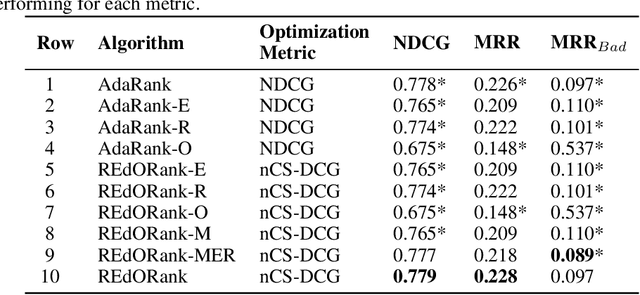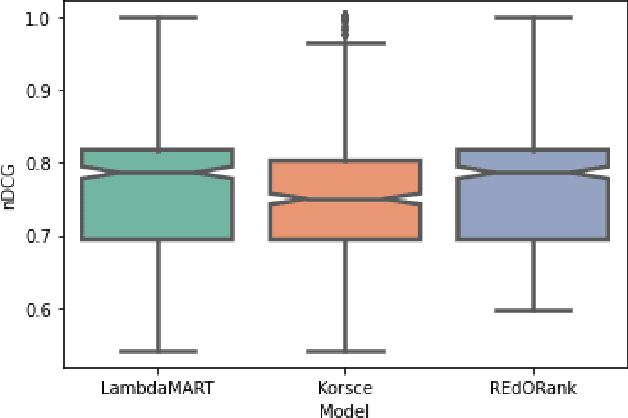A Multi-Perspective Learning to Rank Approach to Support Children's Information Seeking in the Classroom
Paper and Code
Aug 29, 2023



We introduce a novel re-ranking model that aims to augment the functionality of standard search engines to support classroom search activities for children (ages 6 to 11). This model extends the known listwise learning-to-rank framework by balancing risk and reward. Doing so enables the model to prioritize Web resources of high educational alignment, appropriateness, and adequate readability by analyzing the URLs, snippets, and page titles of Web resources retrieved by a given mainstream search engine. Experimental results, including an ablation study and comparisons with existing baselines, showcase the correctness of the proposed model. The outcomes of this work demonstrate the value of considering multiple perspectives inherent to the classroom setting, e.g., educational alignment, readability, and objectionability, when applied to the design of algorithms that can better support children's information discovery.
 Add to Chrome
Add to Chrome Add to Firefox
Add to Firefox Add to Edge
Add to Edge